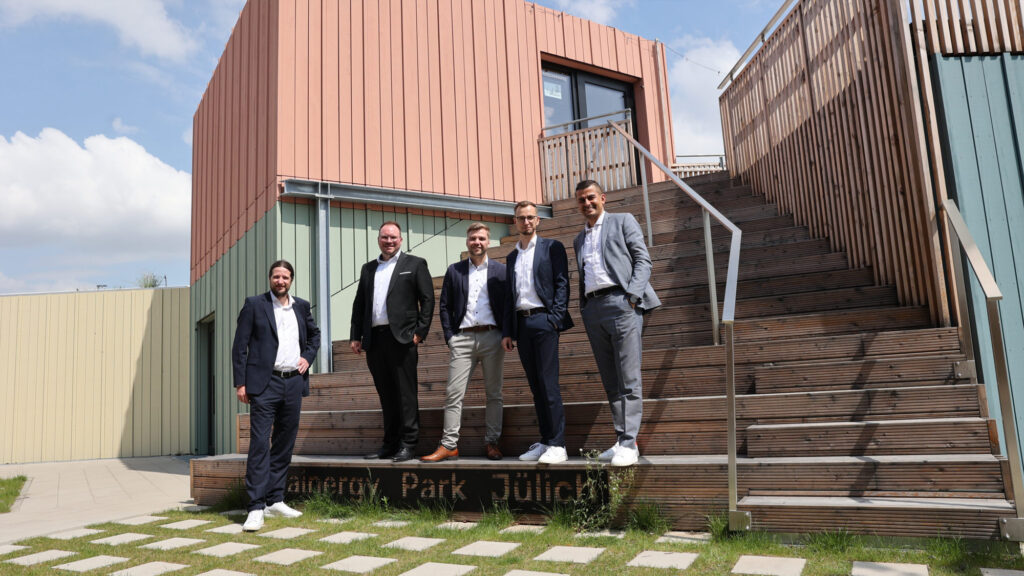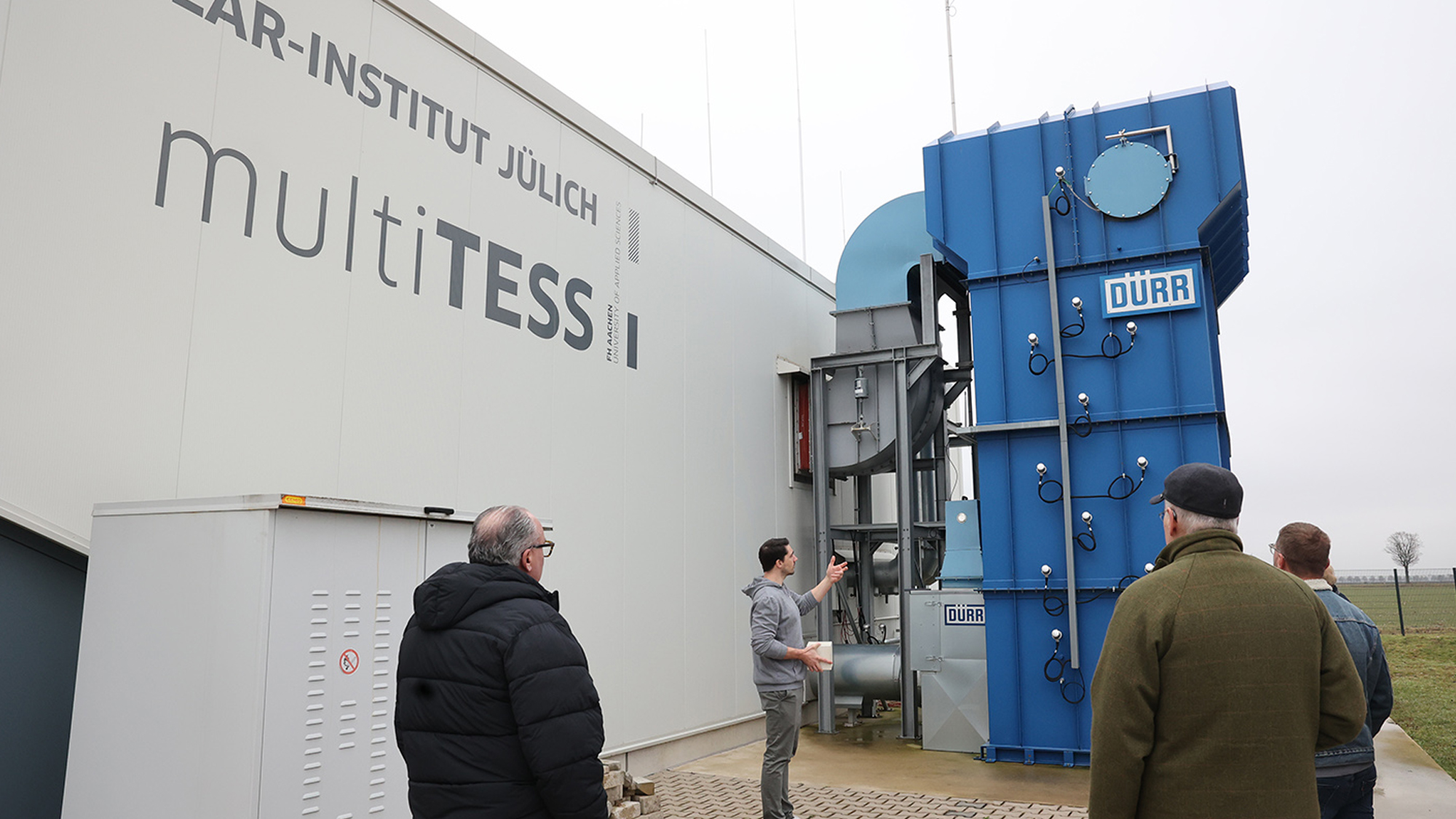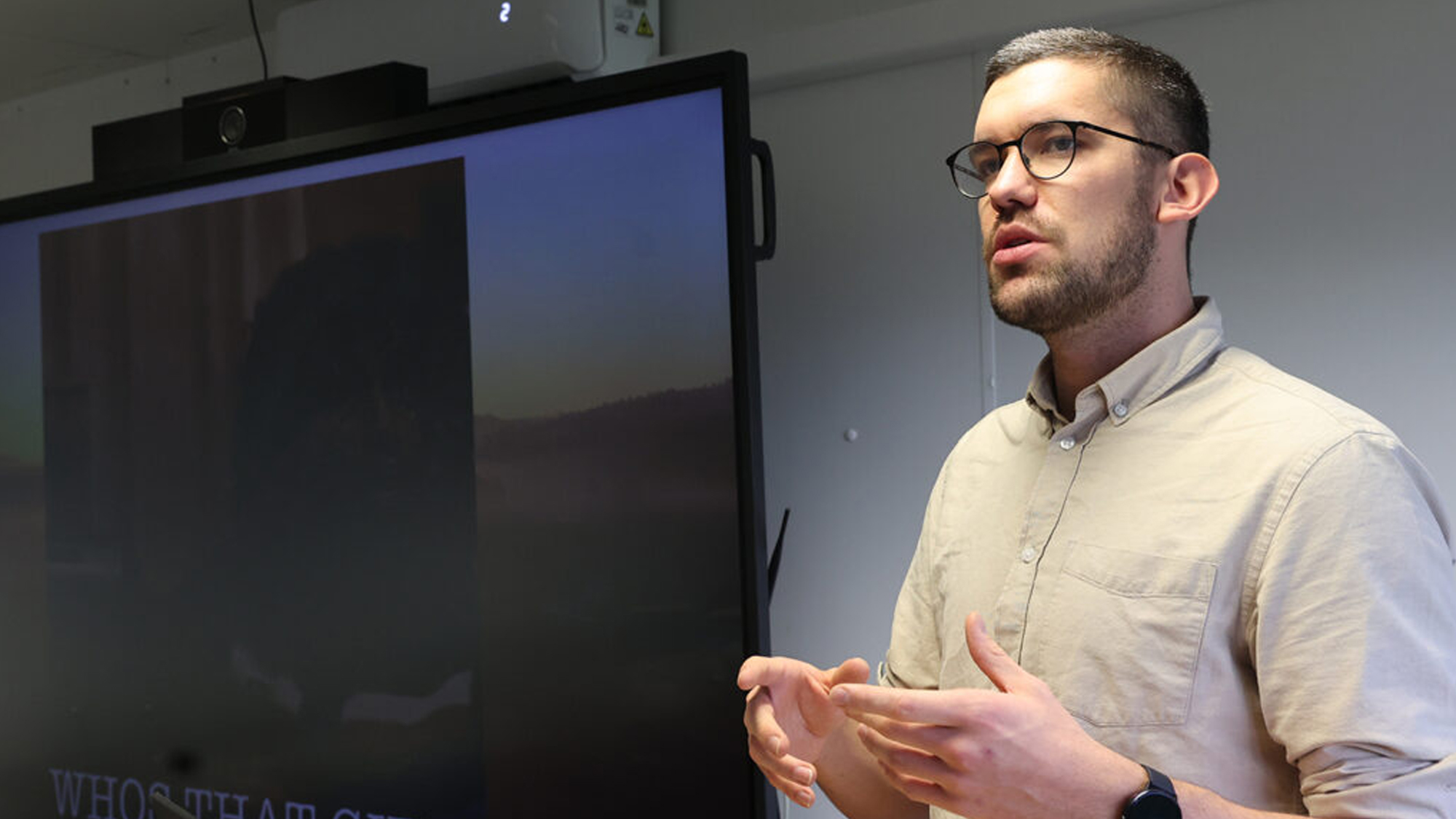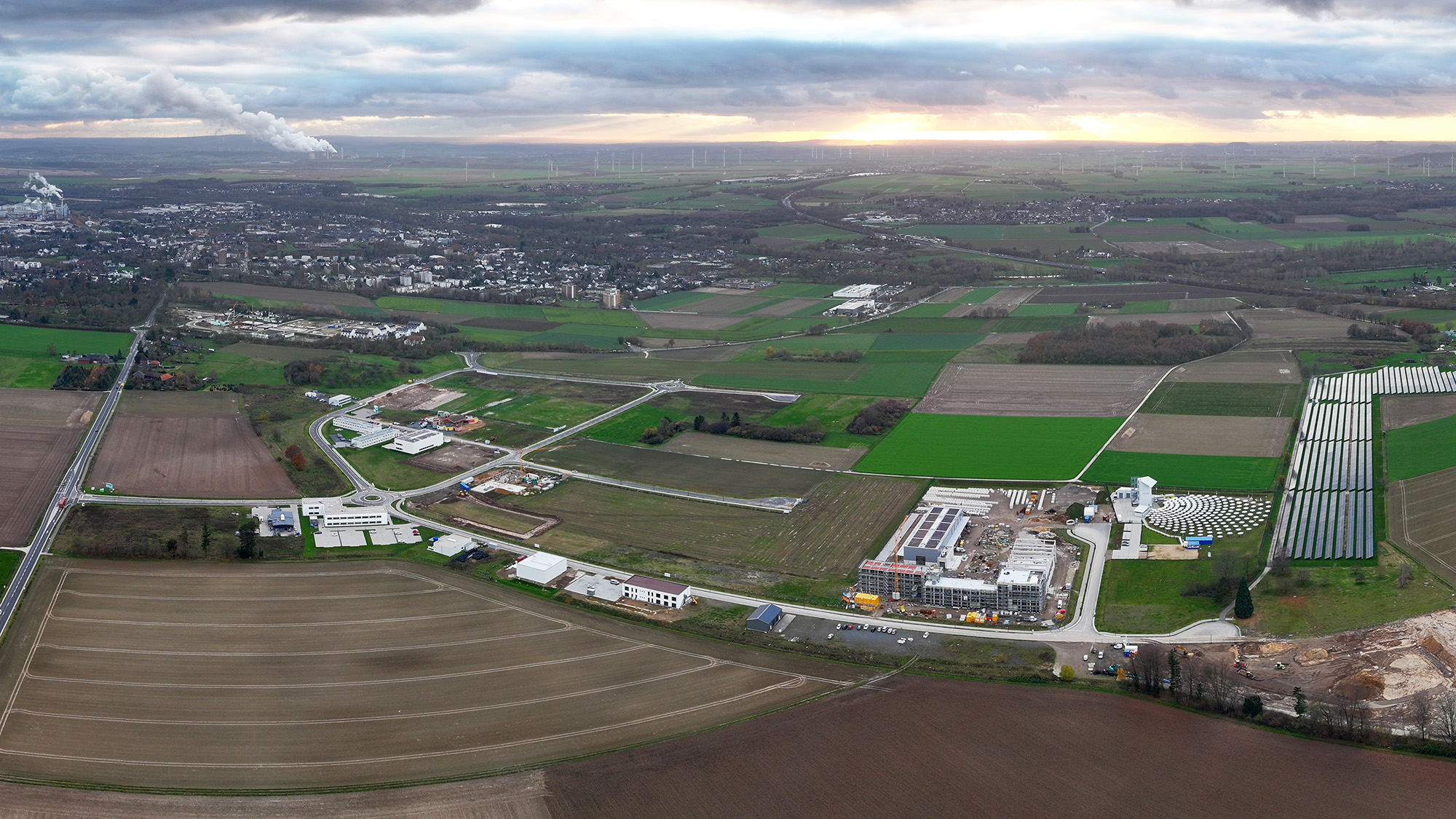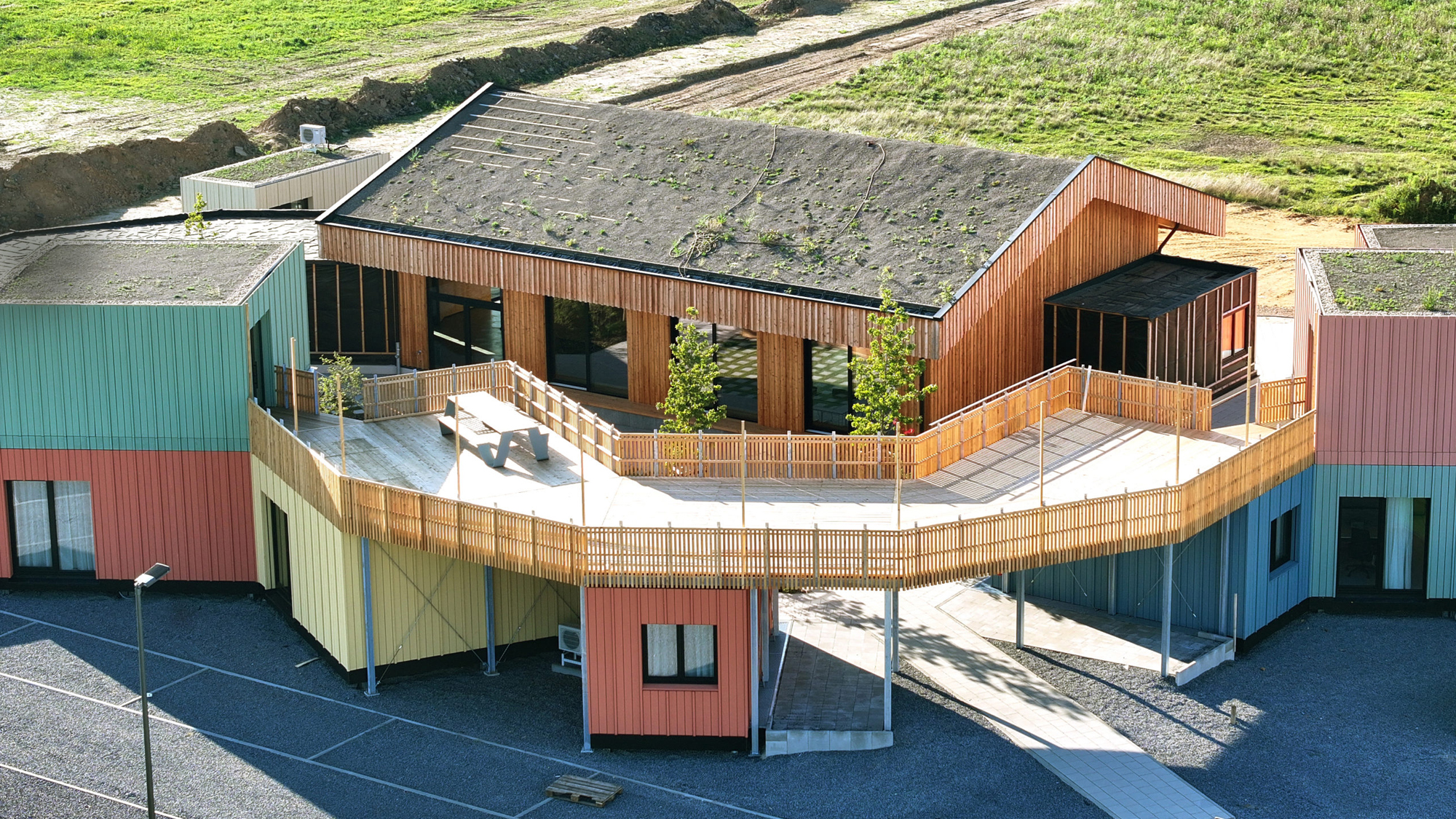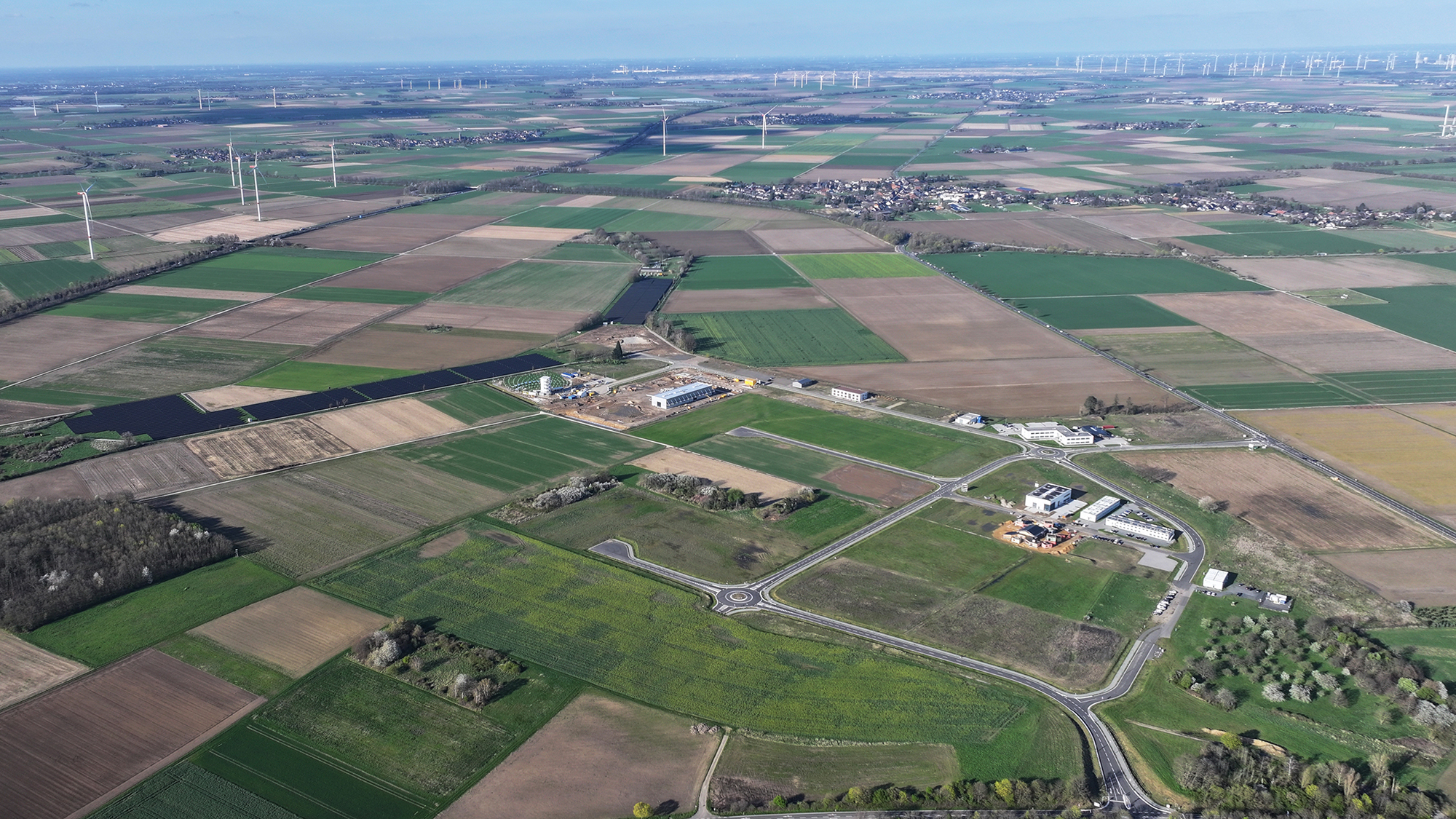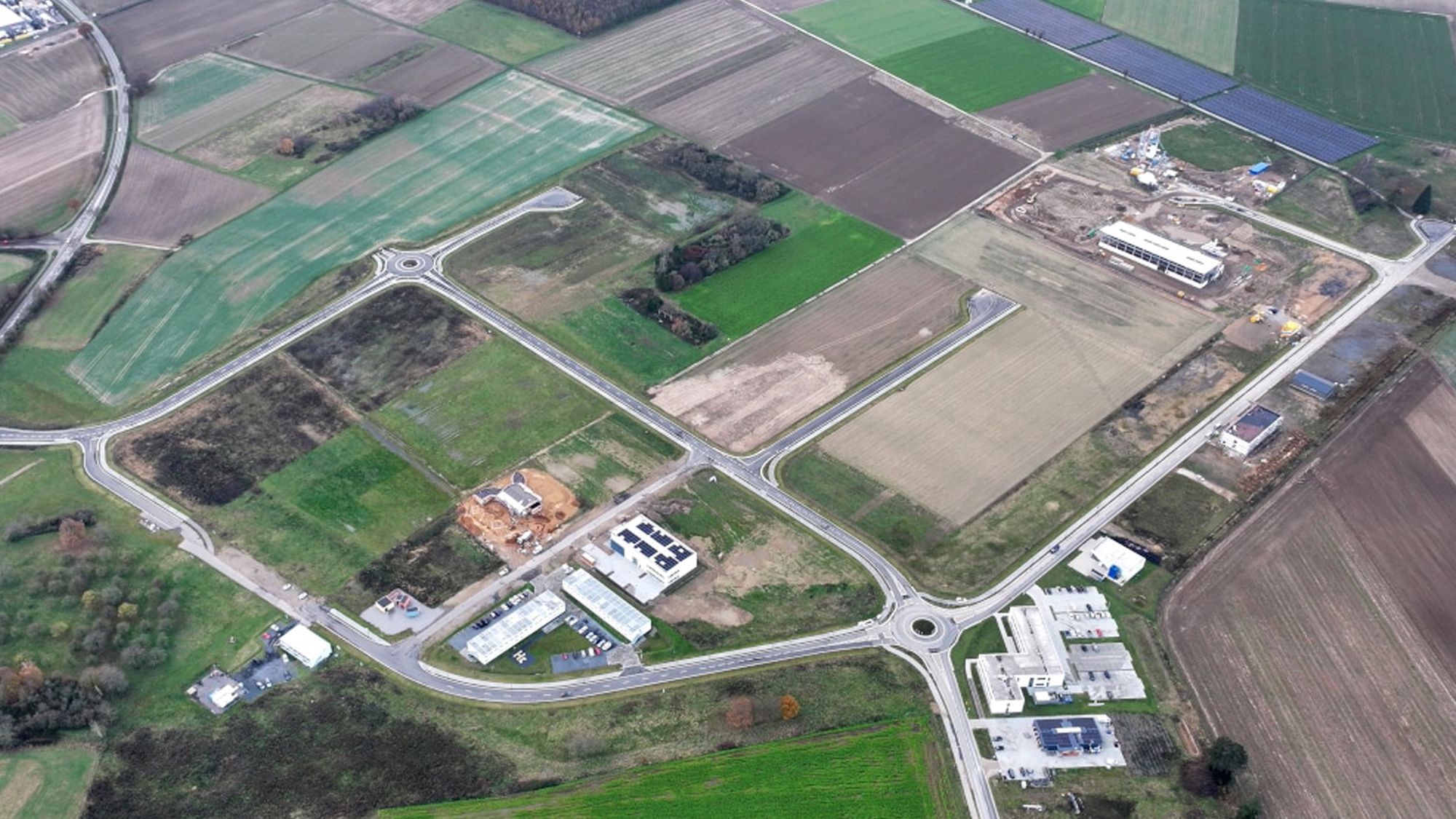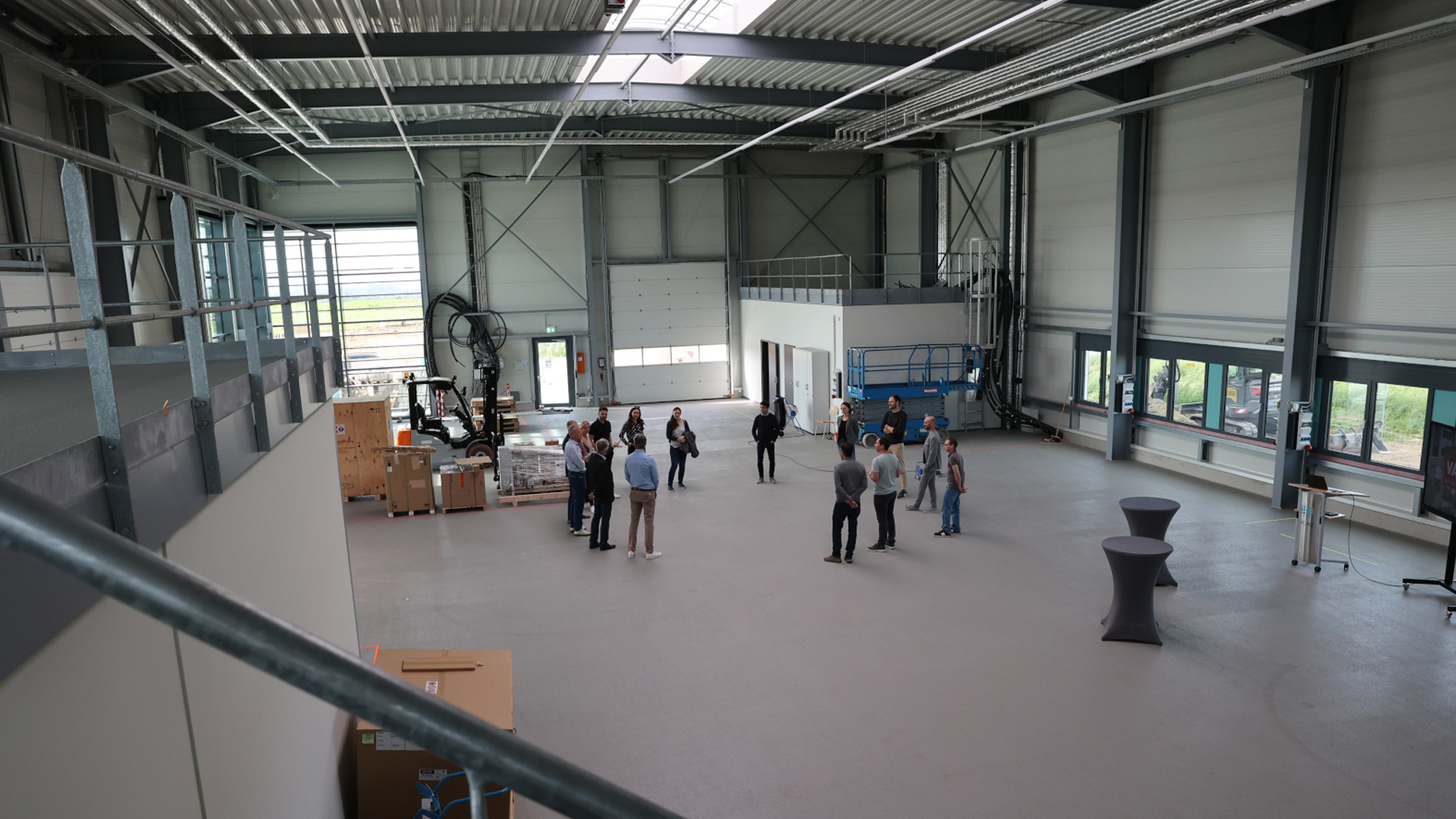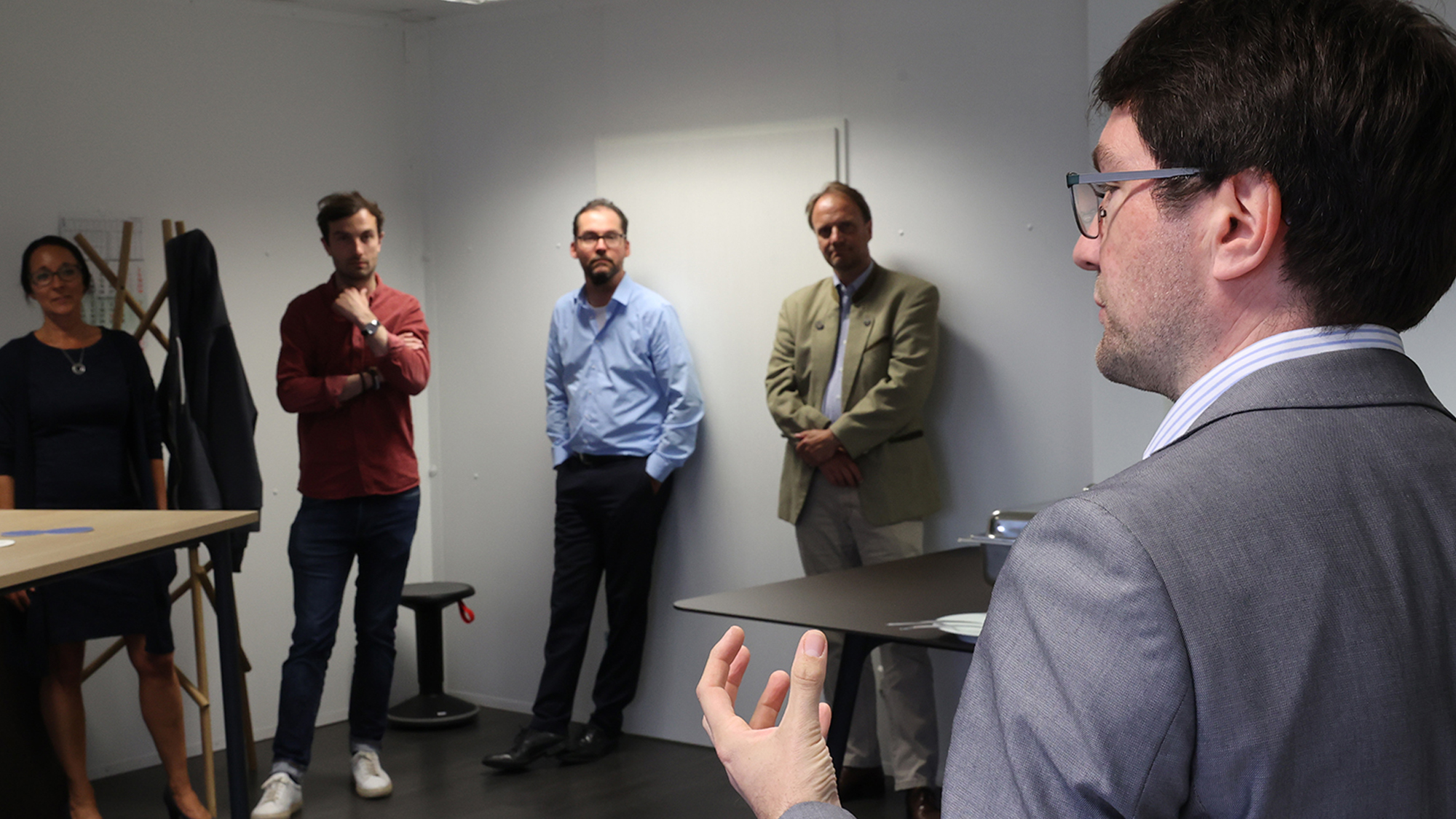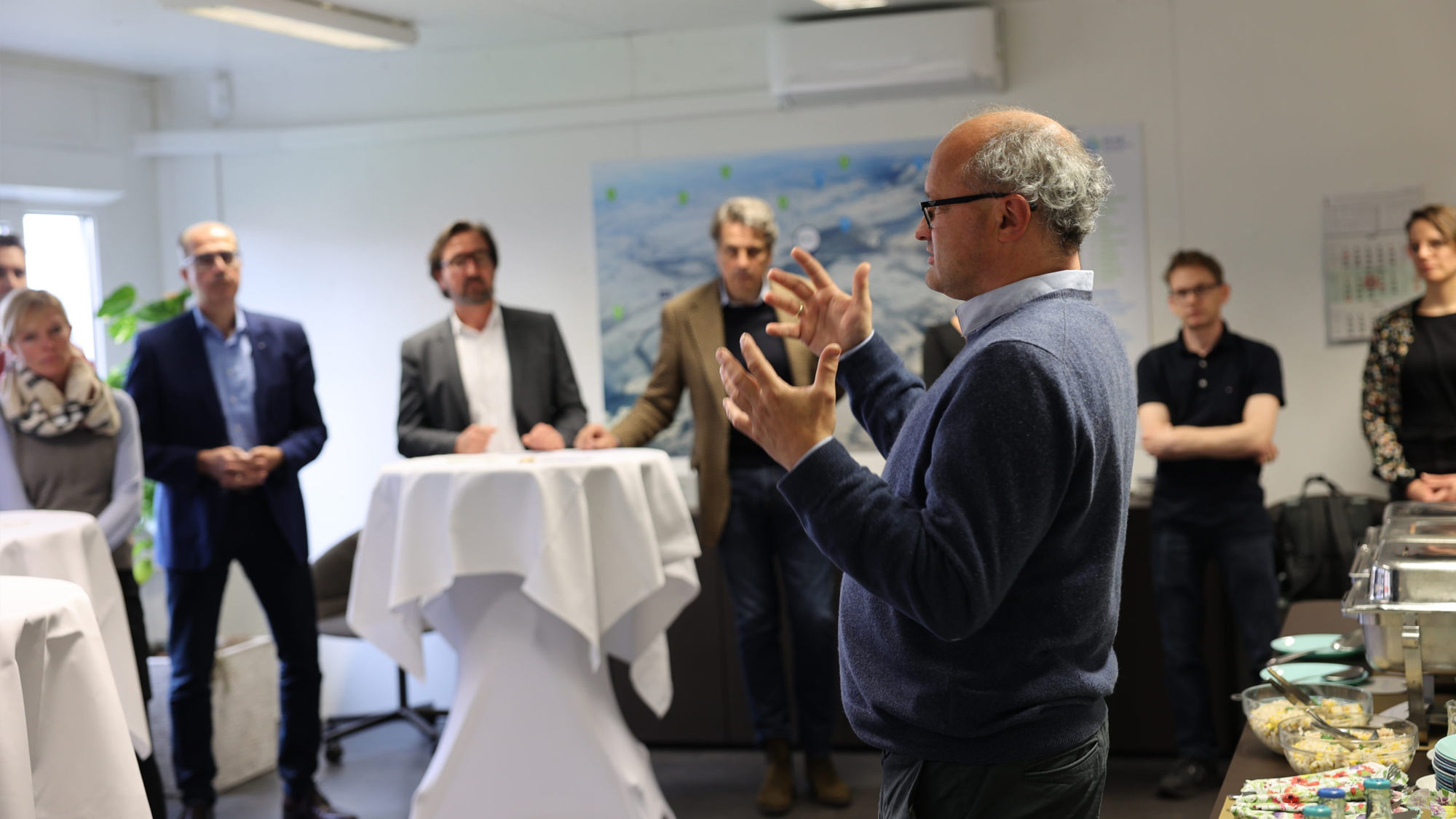Structural change is transforming many things – even for long-established companies such as Sparkasse. The Stadt Dürener Pfand-Leihhaus mit Sparkasse (Düren Municipal Pawnbroker and Savings Bank) was founded in Düren back in 1832 – a precursor to today’s Sparkasse Düren. Since then, its employees have witnessed almost every development in the financial sector. And yet, even for them, not everything is routine, as Christian Simbeck and his colleagues Frank Weigang, Dustin Gillon, Sebastian Willems and Ali-Riza Altin reported in the latest edition of Brainergy Park Connects.
This series of events is aimed at existing and potential neighbours of the Brainergy Park and is a networking format of the Helmholtz Cluster Hydrogen. The aim is to exchange ideas and get to know each other.
The Sparkasse Düren bank is now also one of the neighbours. It has set up a modular office in the Startup Village, which is staffed two days a week. “The Brainergy Park is the centre of structural change in the Düren district. We have a keen interest in ensuring that start-ups that establish themselves here also remain in the region in the future,” says Dustin Gillon, explaining the bank’s commitment.
A steep learning curve
New business ideas mean new requirements – also for Sparkasse. “We are currently experiencing a huge learning curve when it comes to understanding what a deep tech start-up really needs,” says Christian Simbeck. Of course, in the end, it’s all about money. “But we also see ourselves as a sparring partner – for example, when it comes to drawing up business plans. We contribute our perspective and give an assessment: Is the idea marketable? Is the plan realistically calculated?”
New jobs also bring new people to the region. Up to 5,000 jobs are expected to be created in Brainergy Park in the long term. “Many of these people will move here – and then perhaps want to build or buy a house,” says Ali-Riza Altin. That is exactly where Sparkasse wants to be.
“When people are doing well, the economy is doing well – and so is the savings bank,” summarises Christian Simbeck.
The copyright for the images used on this website is held by Forschungszentrum Jülich, aligator kommunikation GmbH and
stock.adobe.com.
